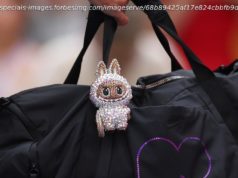Ed Sheeran’s Band Aid stance highlights a shift in leadership: reject performative gestures, empower autonomy, and amplify unheard voices for real impact and relevance.
FEBRUARY 04: (FOR EDITORIAL USE ONLY) Ed Sheeran attends the 66th GRAMMY . [+] Awards at Crypto.com Arena on February 04, 2024 in Los Angeles, California. (Photo by Lionel Hahn/ )
Singer, Ed Sheeran announced his refusal to participate in the Band Aid – 2024 Ultimate Mix—the 40th Anniversary Edition of the iconic charity single Do They Know It’s Christmas?. This has not only sent ripples through the music industry but also has significant implications for all leadership communities. His stance, informed by Ghanaian-British rapper Fuse ODG’s critique of the song’s colonial tropes, I think raises important questions about the role of leaders in challenging outdated narratives and fostering meaningful engagement.
Sheeran’s rejection of the 40th Anniversary pop song wasn’t simply a matter of personal taste. Instead, it highlighted a significant cultural shift representative of an additional level of sensitivity and understanding: one that prioritizes dignity and empowerment over patronizing portrayals and Western intervention. Fuse ODG’s longstanding criticism of the charity sector’s reliance on harmful stereotypes has gained traction, and hopefully inspiring leaders in all industries to rethink how they engage with global issues.
This isn’t just about a Christmas song. The legacy of Band Aid, led by Irish singer-songwriter and political activist, Bob Geldof, once seemed untouchable. Featuring legends like George Michael, Phil Collins, Sam Smith and Boy George, the original Band Aid charity track reached hundreds of thousands of people around the world and raised millions for famine relief in Ethiopia. Yet, decades later—with changing times and people armed with additional insights—questions about its underlying message—depicting African famine and despair through ongoing images of panicked children and exhausted women—have sparked a deeper conversation about the true cost of such efforts.
Here’s what I believe Ed Sheeran’s rejection of the Band Aid legacy, can teach leaders about taking a stand and navigating today’s complex cultural and social landscape.
Ghanaian-English singer, Fuse ODG, whose real name is Nana Richard Abiona, has long been vocal about the charity sector’s harmful narratives. Speaking about Band Aid 30 and its predecessors, the rapper has described the songs as perpetuating “patronizing portrayals” that stifle Africa’s economic growth and global standing.
“By showcasing dehumanizing imagery, these initiatives fuel pity rather than partnership, discouraging meaningful engagement,” Fuse ODG wrote on social media. His critique is not just about Band Aid but about a broader pattern of Western intervention that undermines Africa’s unbridled potential as a resource-rich continent.
For leaders and marketers alike, the takeaway is clear: how you frame an issue matters as much as addressing it. Whether in charity efforts or corporate initiatives, narratives should empower rather than infantilize.
Start
United States
USA — Music Ed Sheeran’s Band Aid 2024 Rejection: Lessons In Reclaiming Narratives






